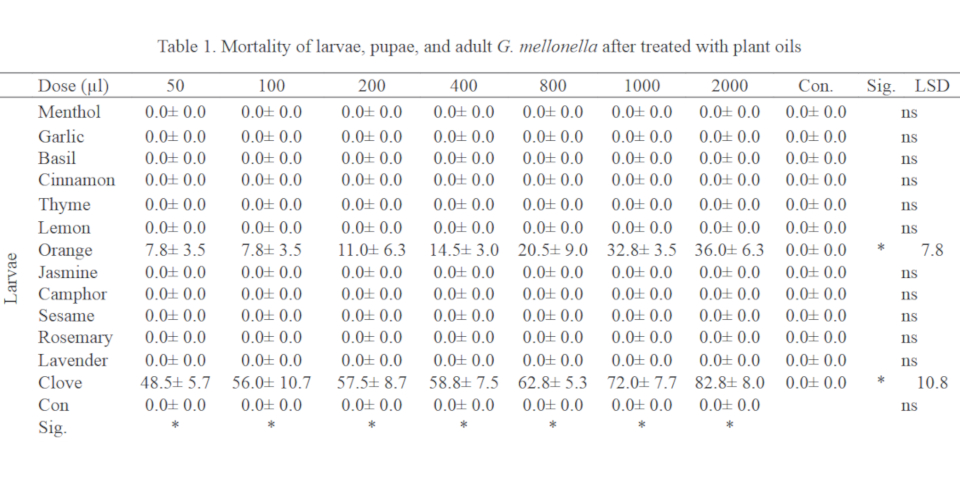In this study, the effectiveness of various plant oils (menthol, garlic, basil, cinnamon, thyme, lemon, orange, jasmine, camphor, sesame, rosemary, lavender and clove oil) in seven doses was tested on greater wax moth larvae, Galleria mellonella L. (Lepidoptera: Pyralidae) in the laboratory and stored wax combs. The findings demonstrated the differing efficacy of the tested plant oils against wax moth larvae as well as the impact of clove oil on larval mortality, with the larval death reaching 82.2% at 2000 μl dose, significantly higher than the other treatments. Orange oil was the next best at 2000 μl dose, (36.0%) while at 50 μl, it was 7.8%. However, regarding pupal mortality, orange oil showed maximum, mortality of 79.8% at 50 μl and recording 100% from 100 μl to 2000 μl dose. Clove oil recorded 7.8% at 50 μl and 16.0% at a dose of 2000 μl. Interaction effects revealed maximum death rate (91.0%) when treated with menthol oil within 24 hr, with 100% occurring at 1000 and 2000 μl dosages. The highest wax damages were observed in the control group, and plant oils. When wax combs were stored with clove and orange oil, there were more dead G. mellonella larvae; along with mortality of larvae, the number of tunnels containing larvae, and the area of silk fibers were also less; G. mellonella adults were affected by clove and orange oil treatments. An acceptance assessment of wax combs treated with clove and orange oils that had been preserved came after the storage experiment. The colony accepted these wax combs, and no bee deaths were observed, indicating that the treatments were both safe and well-liked by the bees.
2424 Members
127 Countries!
127 Countries!










